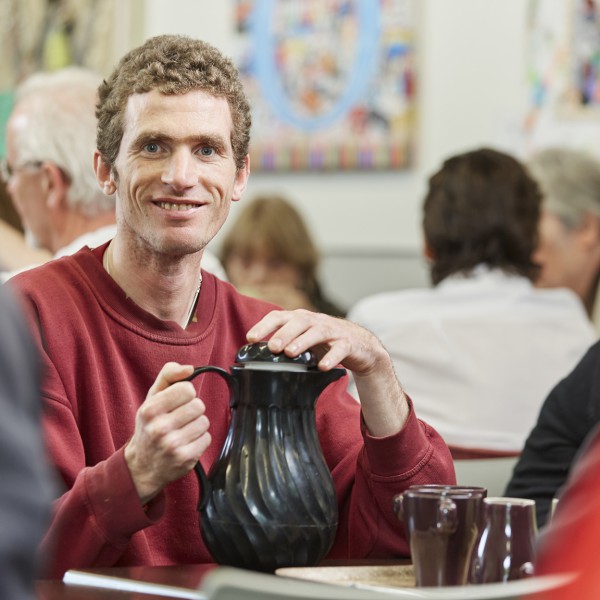Carers
 Click here
Click here
Equipping people with the skills required to live as independently as possible, closer to communities of their choosing, is our aim. We recognise that to do this it’s vital we provide the right type of care to address an individual’s clinical needs and risk.
Both inpatient facilities and community provision are essential for supporting people with learning disability and complex presentations. St Andrew’s Learning Disability service provides a fully comprehensive pathway, extending from medium secure inpatient hospital treatment, right through to residential care in a community setting.
We deliver person-centred care that addresses patients’ mental and physical health, as well as functional, cognitive, emotional, social, communication, sensory and vocational needs.
Our Learning Disability service provides a treatment therapy ethos based on Positive Behavioural Support (PBS). RAID (Reinforce Appropriate (behaviour) Implode Difficult or Disruptive (behaviour)) methodology is the approach we utilise to deliver PBS. Through a genuinely positive philosophy, RAID helps deliver sustained change by focusing on positive aspects of the patient’s behaviour which will ultimately overcome and displace any complex needs.
During the formulation process we identify individual patient needs and tailor treatment for a range of co-morbidities. Care plans are holistic in nature, with physical health and wellbeing needs given equal care and attention as mental health needs, social, communication and sensory needs.
Check now for the most up to date status

In order to continue to support the Transforming Care agenda, and build the right community support, we have extended our Learning Disability service to now include residential care in a community setting. Winslow (Nottinghamshire) place an emphasis on sustainable living and vocational skill development. Our aim is for residents to transition to successful community living.
"At St Andrew’s Healthcare we recognise the importance of Transforming Care and identify with the need to develop community services for people with learning disability and complex presentations, whilst also providing the necessary care levels for those who are demonstrating behaviour that puts themselves or others at risk of harm.
"In response, we have extended our Learning Disability service to now also include residential care in a community setting. This significant new development demonstrates our on-going commitment to providing consistent support for patients throughout their progress to a least restrictive environment, whether that be within a hospital setting or in community-based care."
Clinical Director for the Learning Disability and ASD services.
Our wards